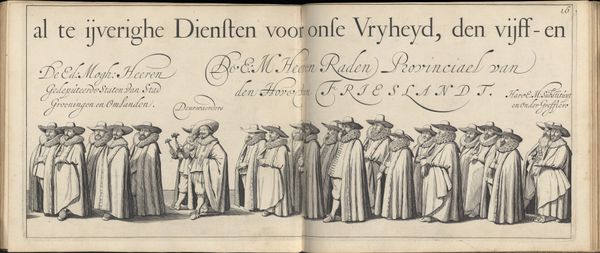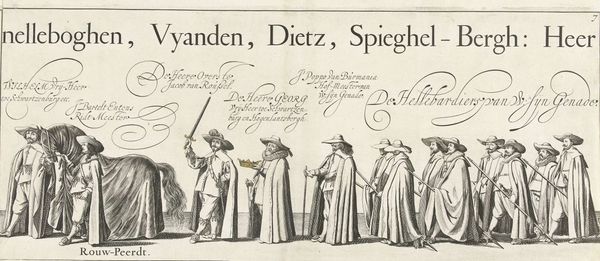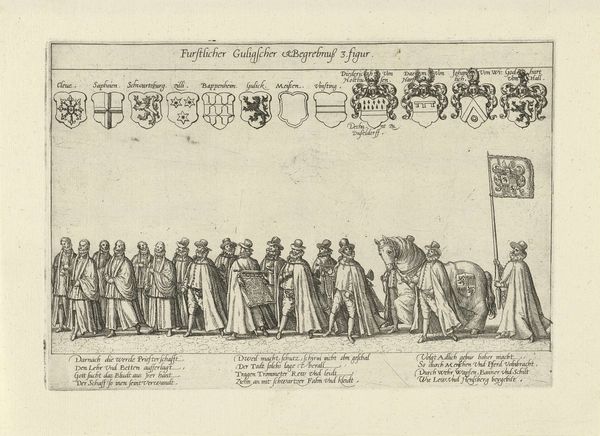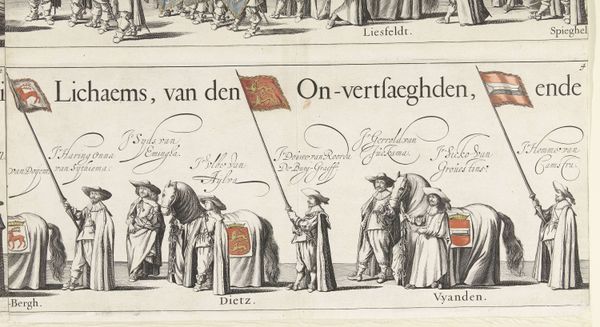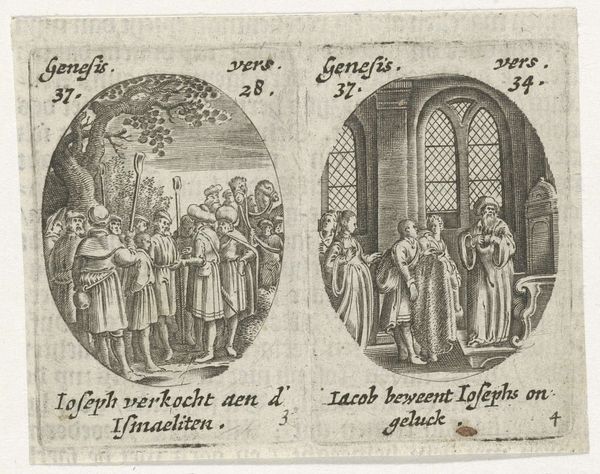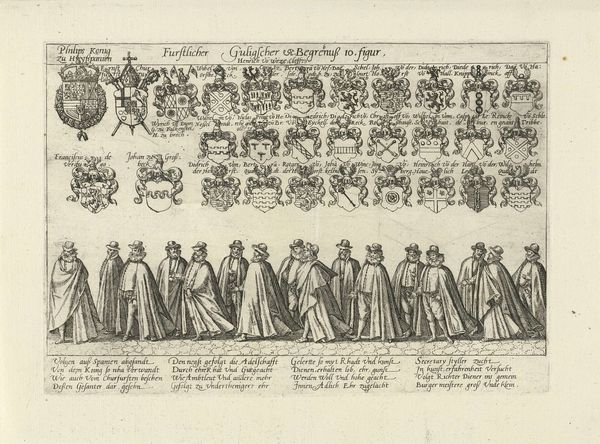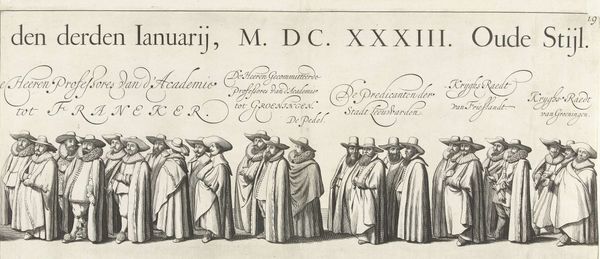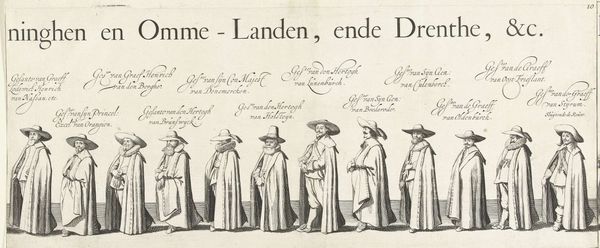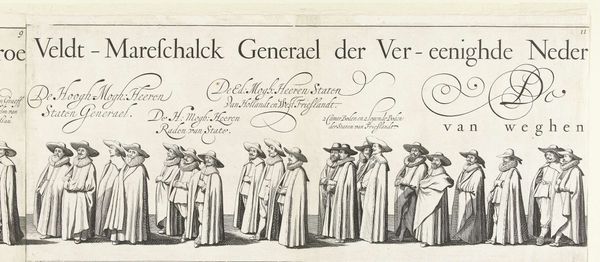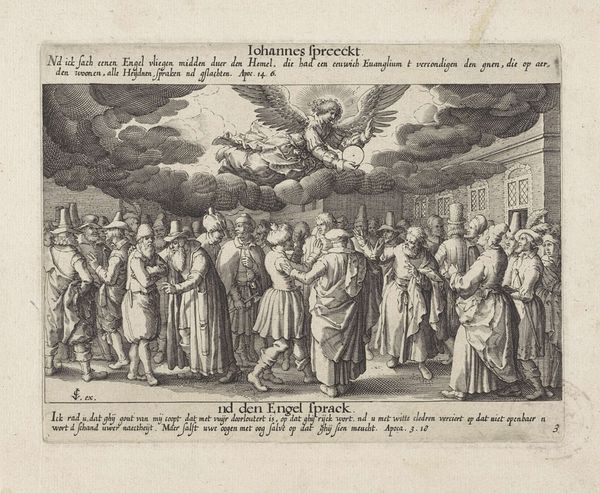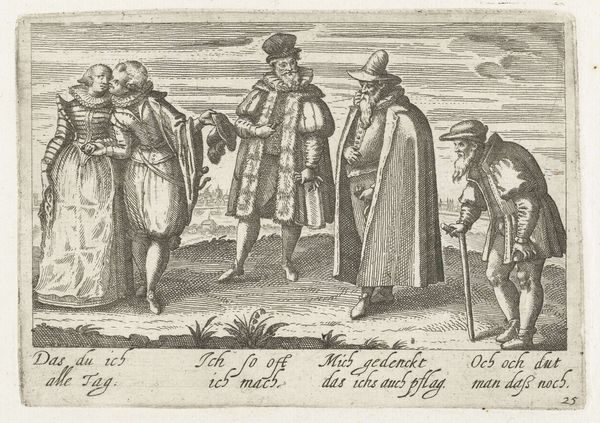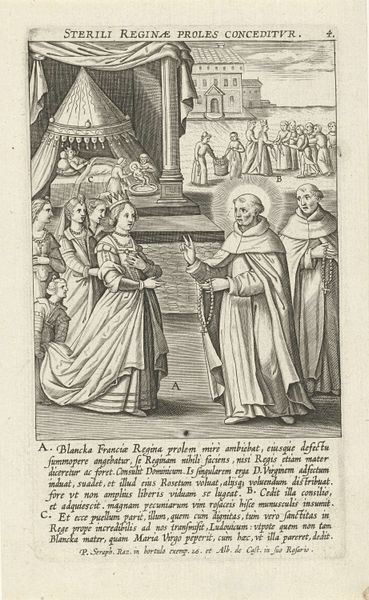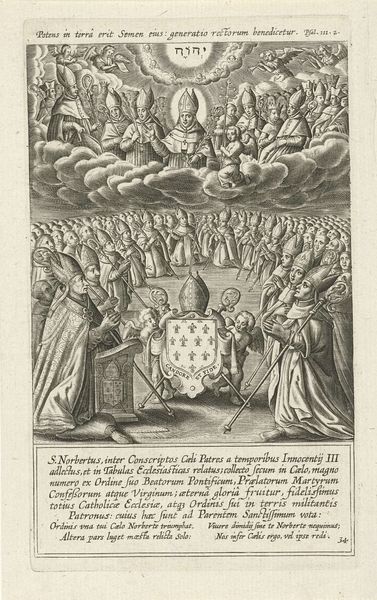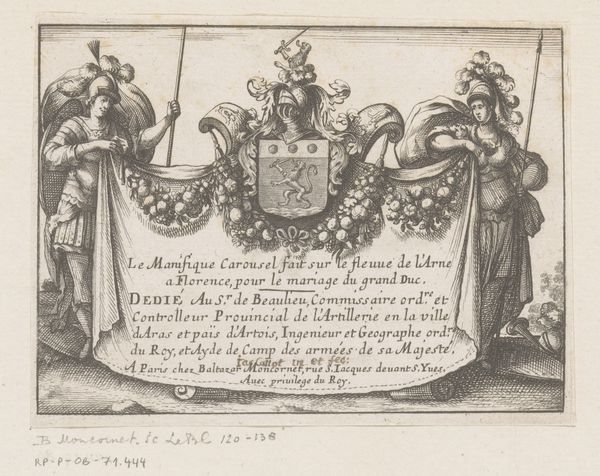
Deel van de begrafenisstoet van Ernst Casimir, graaf van Nassau-Dietz te Leeuwarden (plaat 16), 1633 1634
0:00
0:00
jhermans
Rijksmuseum
print, engraving
#
portrait
#
narrative-art
#
baroque
# print
#
figuration
#
group-portraits
#
line
#
history-painting
#
engraving
Dimensions: height 220 mm, width 485 mm
Copyright: Rijks Museum: Open Domain
This print by J. Hermans from 1633 depicts part of Ernst Casimir's funeral procession in Leeuwarden. The figures are draped in heavy cloaks, a sartorial symbol of mourning and solemnity. Their covered heads and downcast eyes evoke a sense of collective grief and respect for the deceased. This act of veiling oneself in sorrow is an ancient gesture, echoing through time. Think of the veiled figures in Roman funerary art, their faces hidden to ward off the spirit of the dead, or the hooded penitents of the Middle Ages, cloaked in anonymity as they atone for their sins. Here, it transforms into a sign of social and political mourning, as civic leaders perform their duty in remembrance of the fallen count. The uniformity of dress suppresses individual identity and heightens emotional impact, engaging us on a deep, subconscious level. Such imagery persists across cultures and centuries, a testament to our shared human experience of loss. The symbol evolves, adapts, and resurfaces, speaking to the cyclical nature of history and the enduring power of visual motifs.
Comments
No comments
Be the first to comment and join the conversation on the ultimate creative platform.
